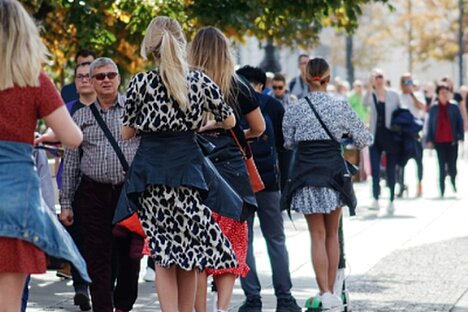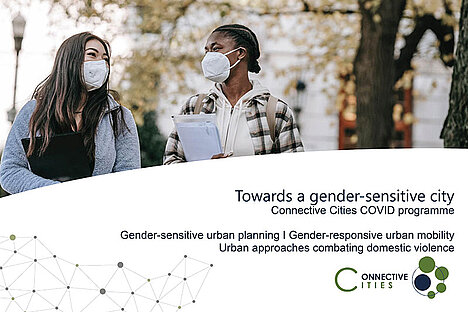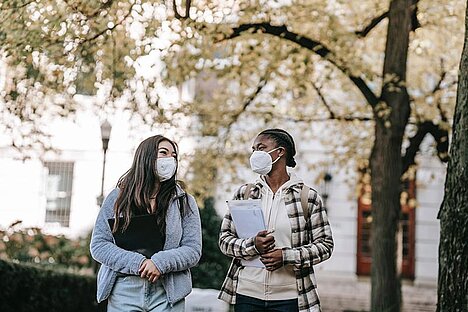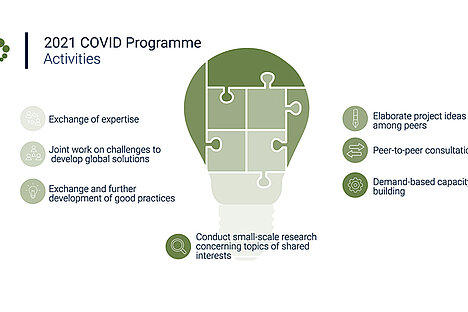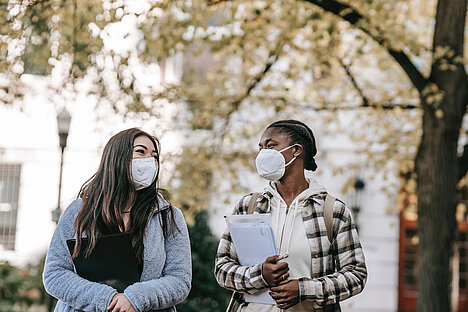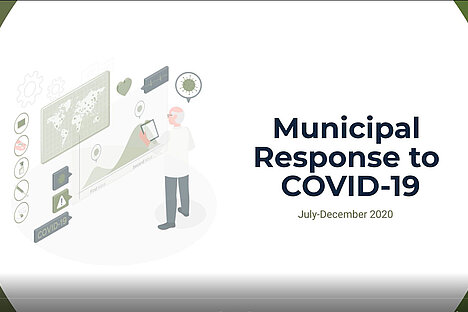- DE |
- EN
Towards sustainable, inclusive and gender-equitable development in the post-Covid era
The COVID-19 pandemic has exposed and exacerbated existing gender inequalities. This is evident in all areas: In public health, economy, and social life. Curfews led to increased domestic violence and disrupted access to support services, including women's shelters. Access to sexual and reproductive health care was also hampered by the pandemic. Closed schools and curfews widened the gender gap in unpaid care work and prevented women from participating in the labour market. This has not only short- but also long-term effects on women's professional opportunities.
Moreover, urban public space continues to pose a threat to women's safety. Yet, access to open and green space has rarely been more important than now when social distancing became an important measure to fight the spread of the virus. Public space provides an opportunity for social inclusion and enables participatory and socially just urban planning. The COVID-19 pandemic can be an opportunity to make land-use planning in urban spaces more gender-sensitive, equitable and sustainable. However, to achieve this goal and effectively respond to the pandemic's impact on women, it is essential to collect gender-specific data at the municipal and national levels.
Without a gender-sensitive approach to urban development, the COVID-19 pandemic may have far-reaching implications on women. Nonetheless, gender-sensitive practices already exist and can contribute to gender equality. The task now is to implement these practices and help municipal actors achieve sustainable, inclusive and (gender) equitable development in the post-COVID era.
---------
Photo (above): Adrian Seliga | istock
News & events
News
Good practices and learning experiences
Good practices
Psychosocial support is more important than ever during the pandemic
09/04/2021
Corona lockdown can heighten the psychosocial problems many people are facing, for example in their family or…
Amman - strengthening social responsibility
07/04/2021
With a prudent vision, the Greater Amman Municipality implemented several hard and soft measures to curb the impact of…
Reviews of virtual events
Publications
Final Report: Virtual Global Exchange
2021 - "Municipal Response to COVID-19" from 23rd November to 3rd December 2020


